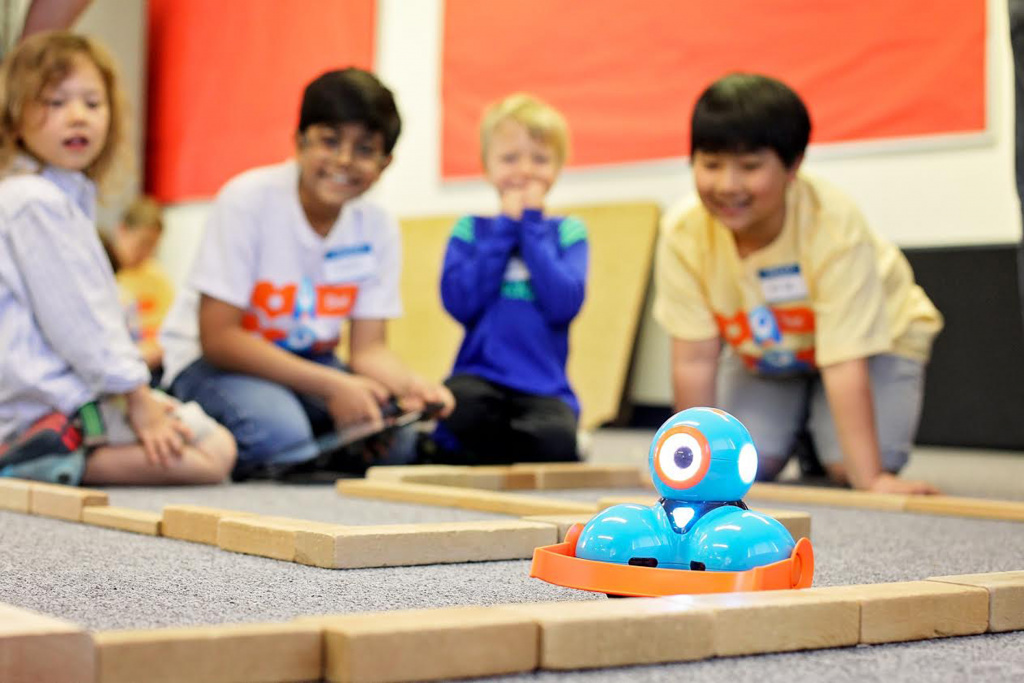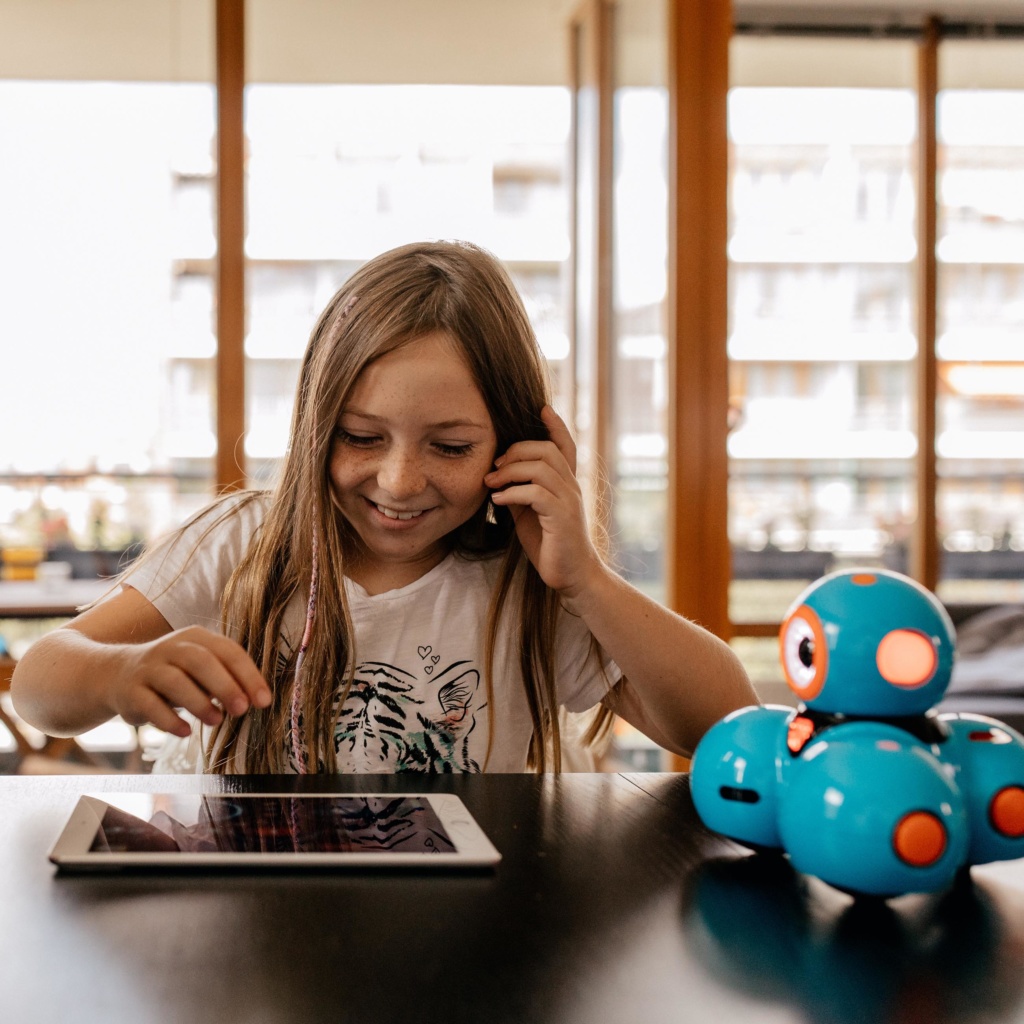
The Art of Playful Education
Speak to any health visitor, nursery or early years teacher, and they will speak effulgently about the importance of play in education. In the home, role-playing toys are encouraged, not just because it’s fun to copy mum and dad, but because they stimulate mental and emotional growth. In nursery classrooms, play shops are set up to build vocabulary and numeracy. Stories are read to increase observation and concentration. Unstructured play is considered as valuable as teacher-led activities for building social and communication skills, as well as physical strength. Very young children learn so much. The first five years are considered especially crucial for physical, intellectual and social-emotional development.1 And most of this learning is done through play. Strange, then, that play becomes less valued as a teaching tool as children progress through the education system.
It was Piaget (1962) who first explored the link between cognitive development and play.2 It was his belief that play remains a vital learning tool into maturity. Rather than leaving toys behind in the nursery, we should simply find different toys that are more suited to each developmental stage. This theory has been accepted and developed by numerous psychologists throughout the last fifty years. And it very much chimes with the ethos of Wonder Workshop.
Teaching Tech Through Play
There isn’t a teacher—or parent—who hasn’t noticed the difference between the responses generated in children by theory and practical work. Even the most diligent student will unknowingly show more interest in a hands-on activity than when reading a textbook. Bring a Van de Graaff generator to a science lesson and suddenly all that stuff about electrostatic force suddenly comes to life. Try teaching almost any child about computer programming with a page of coding and the eyes of all but a very few will glaze over. Try teaching the same subject with the aid of a robot, then the response is completely different.
Wonder Workshop’s Dash
Aimed at children aged six to eleven, Wonder Workshop’s Dash has been designed to turn children’s innate curiosity and desire to play into a learning experience. Working in line with the current National Curriculum, its system has been developed to foster the key skills associated with all of STEM learning. But the clever part is that Dash enables teachers to integrate coding into the everyday, across all grades and subjects—all through play.
Imagine you’re a six-year-old being given your very own robot. It can do all sorts of things: tackle obstacle courses, ‘run’ races, dance, sing and even speak with you. All you have to do is follow a few instructions to get it working. That is the beauty of Dash. Because while you’re doing all of the fun stuff, you’re actually learning the basics of coding: sequences, loops, variables, functions and conditionals.
Ready to use out of the box, with no need for prior knowledge or experience, Dash teaches everything from scratch, working to help children through the National Curriculum at their own pace and in their own style through play. Powered by tablet or smartphone apps, it sets increasingly stimulating challenges as knowledge acquisition is demonstrated. But because those challenges are fun, children are relieved of any concomitant pressure that might otherwise be present. As they are playing, the information is being absorbed. And there may well be healthy competition among peers —who can finish the challenge first?—but no one is left feeling inadequate, and no one is left feeling bored or disengaged because the lessons are primarily about play; the learning is almost done by stealth.
And this learning isn’t limited to the field of programming, It promotes skills that are transferable to other disciplines and other areas of life, including problem solving, scientific thinking, design thinking, spatial awareness, communication, mathematical reasoning and computational thinking.
This form of learning brings benefits for teachers too. Not only can they see how each child is developing as they work through the tasks that Dash sets them, but they can also use the robot for other purposes. Shakespeare could be brought to life through a robotic Romeo. The applications of science and mathematics could be more engagingly demonstrated with a robotic teaching assistant. This cross-pollination approach to education helps to cement theories and gathered information, as each subject is revisited, without ceremony, on a regular basis and in differing contexts. And all of this is available without endless time-hungry research and prep.

The Benefits of Learning Through Play
One of the psychologists most quoted in support of playful learning is Lev Vygotsky.3 He famously said that ‘In play a child is always above his average age, above his daily behaviour, in play, it’s as though he were a head taller than himself.’ And the beautiful thing about this, is that it applies across the board. And if you find the right interface, play is not only elevating, but levelling. In utilising technological learning aids, such as those produced by Wonder Workshop, all students are made equal through play. The design of Dash—free from any oblique gender or cultural references, free from anything that might imply suitability (or unsuitability) for any particular intended audience—provides that level field. Socio-economic backgrounds become irrelevant. The gender gap that seems to be ever present is nullified in the classroom as both girls and boys are engaged. And if we can foster that engagement at the age of six, there is a greater chance of sustaining it throughout a child’s academic career—and potentially into the jobs market.
At present, 62 per cent of employers not working directly within the tech or STEM industries highly value programming skills. As computers become more and more integrated into the workplace—and general life—that figure is only going to grow, until coding and programming aren’t just desirable skills, but expected ones. In the US, 50,000 college-educated computer scientists will enter a job market which currently offers 200,000 open positions in the field and a similar ratio can be expected within the UK. Any student who leaves education lacking in that basic knowledge will be at an immediate disadvantage.
Playful Learning in a Nutshell
Why is learning through play important? What are the challenges teachers are facing? And what’s the solution?
In making learning fun it becomes a pleasure rather than a chore. Wonder Workshop’s solution does not only makes coding easy for kids to learn but for teachers too, thereby removing the ‘fear’ from teaching a difficult topic such as coding. It also helps to eliminate the psychological block of ‘I can’t’, which most people—adults as well as children—face when confronting something new. A page full of code would test the determination of most of us. When its introduced through play, however, that block is removed. Children take on the challenge without even thinking of it as so. Learning occurs without acknowledged effort.
There is a huge amount of pressure on schools and teachers these days. Resources—including time—are short. Finding ways to deliver the crucial lessons in developing subjects, such as computer science, in ways that are both cost-effective and, importantly, engaging for children, is a serious challenge. Finding ways to do this without making too many demands on already overburdened teachers is doubly so.
Wonder Workshop’s Dash has already been adopted by more than 20,000 schools worldwide. Its box-ready format makes it ideal for the school room setting. A wealth of support is available, should it be necessary, and a comprehensive suite of resources means that it can grow with the child. One clever robot can accompany a child right through their primary education, building upon curriculum learning and nurturing inherent curiosity. With benefits for both students and teachers, playful learning seems the most obvious solution for tackling a very real problem.
Tabi Bude is the Managing Director of Wonder Workshop EMEA. His mission is to make coding fun for kids, teachers and parents, providing a challenging and enjoyable way to program.
Notes:
1. California Department of Education (2018). Ages and stages of development. https://www.cde.ca.gov/sp/cd/re/caqdevelopment.asp
2. McLeod, S. (2018). Jean Piaget’s theory of cognitive development. Simply Psychology. https://www.simplypsychology.org/piaget.html
3. Bodrova, E. & Leong, D. (2015). Vygotskian and post-Vygotskian views on children’s play. American Journal of Play, 7(3). https://files.eric.ed.gov/fulltext/EJ1070266.pdf
Register for free
No Credit Card required
- Register for free
- Free TeachingTimes Report every month